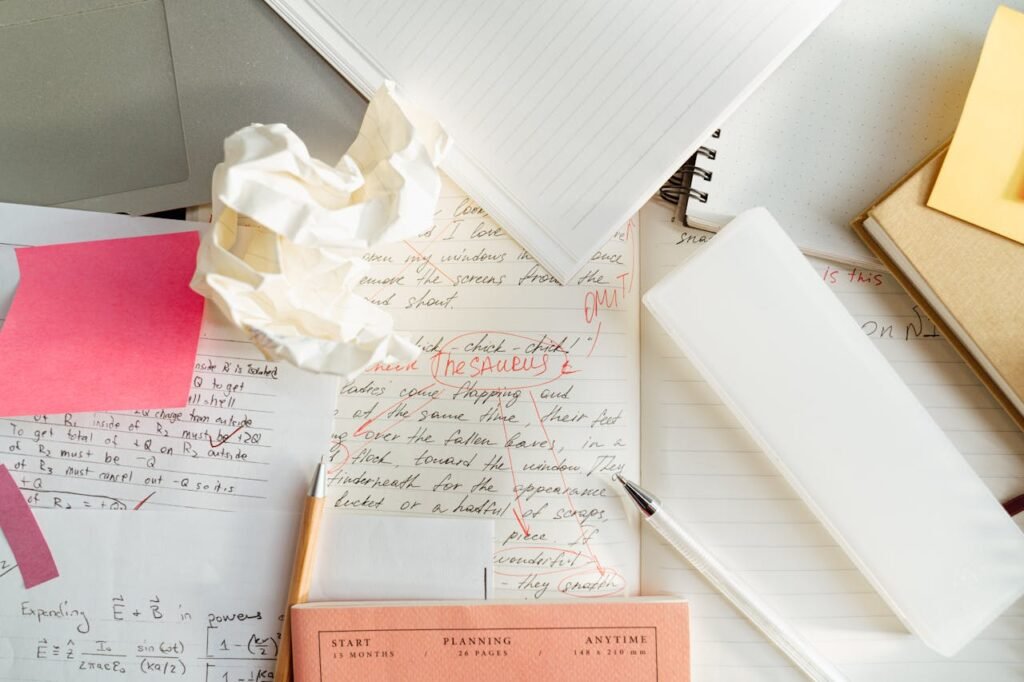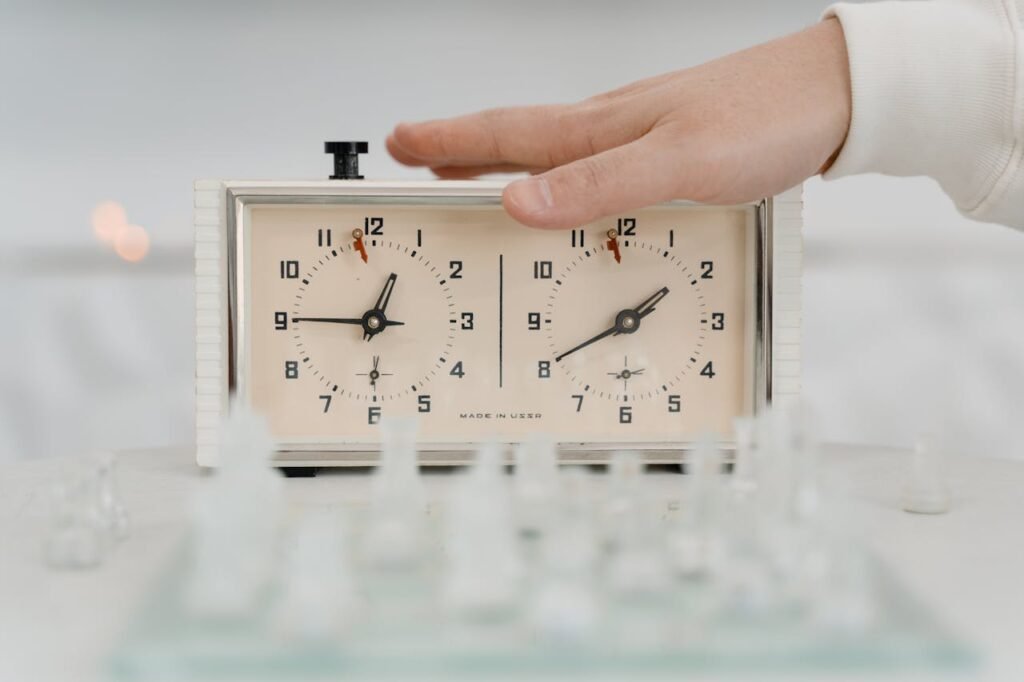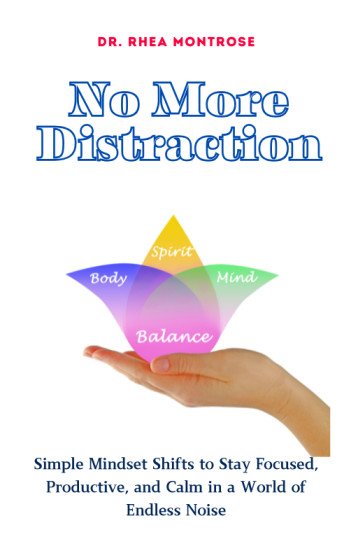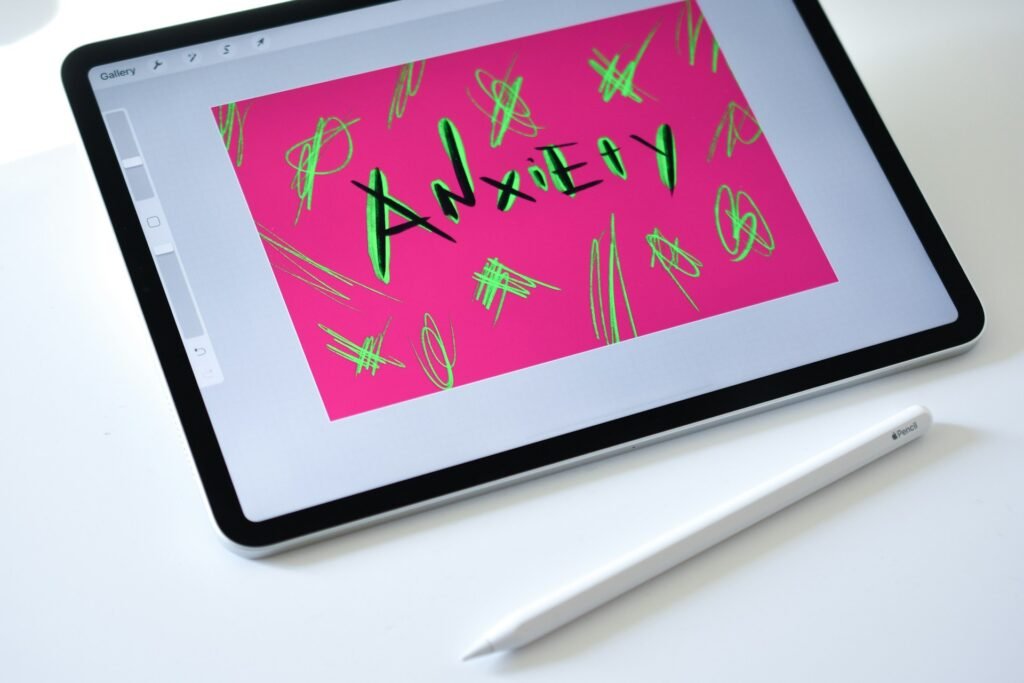
- 1. Begin Your Day with Mindful Breathing
- 2. Stay Hydrated Throughout the Day
- 3. Commit to Quality Sleep
- 4. Nourish Your Brain with the Right Foods
- 5. Declutter Your Space for a Clear Mind
- 6. Practice Daily Gratitude
- How to Cultivate Gratitude
- 7. Adopt the 25-5 Rule for Strategic Breaks
- Why It Works
- Bonus Habit: Unplug for an Hour Daily
- How to Unplug
- The Big Picture
- FAQs on Mental Clarity and Daily Habits to Improve It
Mental clarity is a prized possession in our increasingly chaotic world. Whether you’re a student preparing for exams, a professional tackling challenging projects, or simply someone trying to navigate life’s complexities, mental sharpness is essential. Unfortunately, mental fog, distraction, and stress often cloud our ability to think clearly.
Achieving mental clarity doesn’t require drastic changes to your lifestyle. Instead, it’s about adopting simple, sustainable habits that create a strong foundation for cognitive health. In this article, we’ll explore seven powerful daily habits to improve mental clarity, dive deep into their benefits, and provide actionable steps to incorporate them into your life.
1. Begin Your Day with Mindful Breathing
Mornings are a golden opportunity to set the tone for your entire day. Starting your day with mindful breathing can help you shake off mental grogginess and prepare your mind for the challenges ahead.

Why It Works:
Mindful breathing calms the nervous system and increases oxygen flow to the brain, which enhances concentration and decision-making. It also lowers stress hormones like cortisol, which can interfere with clear thinking.
How to Practice Mindful Breathing
- Find a Quiet Space: Sit or lie down comfortably in a quiet spot.
- Focus on Your Breath: Close your eyes and take a deep breath through your nose for four seconds. Hold your breath for another four seconds and exhale slowly through your mouth for six seconds.
- Repeat for Five Minutes: Continue this cycle for five minutes, gradually increasing the duration as you become more comfortable.
Bonus Tips: Pair your breathing practice with positive affirmations. For instance, as you inhale, think, I am calm and focused, and as you exhale, think, I release all distractions.
2. Stay Hydrated Throughout the Day
Water is the essence of life and the fuel your brain needs to function at its best. While we often focus on hydration for physical health, its impact on mental clarity is equally significant.
Why It Works:
The human brain is nearly 75% water, and even mild dehydration can impair memory, concentration, and alertness. Regular hydration supports efficient communication between brain cells and keeps cognitive functions sharp.

Hydration Tips
- • Start Your Day Right: Drink a glass of water as soon as you wake up to rehydrate after a night’s sleep.
- • Carry a Reusable Bottle: Keep water within reach to encourage consistent sipping throughout the day.
- • Infuse Your Water: Add lemon, mint, or cucumber to your water for added flavor and detox benefits.
- • Follow the “8×8 Rule”: Aim to drink at least eight 8-ounce glasses of water daily, adjusting based on activity level and climate.
Recognize Dehydration Signs
Fatigue, headaches, dry mouth, and difficulty concentrating are common indicators of dehydration. If you notice these symptoms, a simple glass of water could make all the difference.
3. Commit to Quality Sleep

Sleep is often sacrificed in the name of productivity, but the irony is that lack of sleep dramatically reduces mental clarity. Achieving consistent, high-quality sleep is one of the most effective ways to enhance cognitive performance.
Why It Works:
During sleep, your brain consolidates memories, repairs itself, and removes toxins that accumulate during the day. Sleep deprivation disrupts these processes, leading to mental fog, poor decision-making, and reduced focus.
How to Improve Sleep Hygiene
- Set a Consistent Schedule: Go to bed and wake up at the same time daily, even on weekends.
- Create a Relaxing Bedtime Routine: Activities like reading, meditating, or taking a warm bath can signal your body that it’s time to wind down.
- Optimize Your Sleep Environment:
o Keep your room dark, quiet, and cool.
o Invest in a comfortable mattress and pillows. - Limit Caffeine and Screens: Avoid caffeine after 2 PM and turn off electronic devices at least an hour before bedtime to minimize blue light exposure.
The Magic of Power Naps
If you’re feeling mentally drained during the day, a 20-minute nap can recharge your brain without interfering with nighttime sleep.
4. Nourish Your Brain with the Right Foods
Your diet plays a vital role in your mental clarity. The food you consume is the fuel your brain uses to function, so choosing nutrient-dense options is crucial.

Brain-Boosting Foods
- • Omega-3 Rich Foods: Salmon, walnuts, and chia seeds support brain cell structure and communication.
- • Antioxidant Powerhouses: Blueberries, spinach, and dark chocolate protect the brain from oxidative stress.
- • Whole Grains: Quinoa, oats, and brown rice provide steady energy to avoid mental fatigue.
- • Avocados: Their healthy fats improve blood flow to the brain.
Foods to Avoid
- • Processed foods high in sugar and trans fats can lead to energy crashes and brain fog.
- • Limit alcohol, which disrupts neurotransmitter activity and impacts cognitive function.
Plan Your Meals
- • Start with a Brain-Boosting Breakfast: Oatmeal topped with berries and a handful of nuts is an excellent choice.
- • Opt for Balanced Snacks: Choose hummus with carrots or an apple with almond butter over chips or candy.
- • Stay Consistent: Make healthy eating a daily habit rather than a sporadic effort.
5. Declutter Your Space for a Clear Mind
Your physical environment has a profound impact on your mental state. A cluttered workspace or home can overwhelm your senses and make it harder to focus.
Why It Works:
Decluttering reduces visual distractions, lowers stress levels, and fosters a sense of control and order—all of which contribute to improved mental clarity.

Practical Steps to Declutter
- Adopt the “One-In-One-Out” Rule: For every new item you bring into your space, remove one item you no longer need.
- Organize Your Workspace: Keep only essential items on your desk to create a clean, calming environment.
- Set a Daily Tidying Timer: Spend five minutes each evening putting things back in their place.
Minimalism for Mental Clarity
Embrace a minimalist mindset by focusing on what truly adds value to your life. Less clutter equals more mental space.
6. Practice Daily Gratitude
Gratitude is a simple yet transformative habit that shifts your focus from stressors to blessings, fostering a more positive mindset and improving mental clarity.
Why It Works:
Practicing gratitude trains your brain to focus on the positive aspects of life, reducing mental clutter caused by worry or negativity. It also enhances emotional well-being, which directly impacts cognitive performance.

How to Cultivate Gratitude
- Start a Gratitude Journal: Write down three things you’re grateful for each day.
- Express Gratitude to Others: Send a thank-you note or verbally appreciate someone’s kindness.
- Reflect During Moments of Stress: Pause and remind yourself of what’s going well in your life.
The Ripple Effect
When you cultivate gratitude, your brain begins to focus on positive experiences rather than dwelling on challenges or stressors. This shift doesn’t just make you feel good—it actively rewires your brain. Studies have shown that consistent gratitude practice strengthens neural pathways associated with happiness and resilience, reducing the mental clutter caused by worry, fear, and negative thoughts. A mind unburdened by such noise can process information more efficiently and focus more deeply.
But the ripple effect doesn’t stop there. Gratitude fosters a healthier perspective on life, allowing you to approach challenges with greater optimism and creativity. Instead of feeling stuck in a problem, your mind becomes clearer and more solution-oriented. For example, acknowledging small wins can keep you motivated, even during stressful situations. This positivity spills into your interactions, creating a sense of harmony in relationships that further reduces mental strain.
In practical terms, the ripple effect can begin with small, daily actions. Writing in a gratitude journal, expressing appreciation to someone, or pausing to reflect on a positive moment are simple ways to start. Over time, these acts accumulate, creating a positive feedback loop that enhances mental clarity and overall well-being.
7. Adopt the 25-5 Rule for Strategic Breaks
Sustained focus is a myth. Your brain needs regular breaks to perform at its best. The 25-5 rule, also known as the Pomodoro Technique, is a proven method to enhance productivity and mental clarity.

How it works
- Work in 25-Minute Intervals: Focus entirely on one task for 25 minutes.
- Take a 5-Minute Break: Step away from your workspace to stretch, hydrate, or simply breathe.
- Repeat for Four Cycles: After four intervals, take a longer break of 15-30 minutes.
Why It Works
This technique prevents mental fatigue, helps you stay energized, and breaks overwhelming tasks into manageable chunks. Break Activities for Mental Refreshment
- • Take a brisk walk.
- • Perform light stretches.
- • Practice a quick mindfulness exercise.
Bonus Habit: Unplug for an Hour Daily
Digital distractions are a significant source of mental clutter. Taking time away from screens allows your mind to recharge and focus on the present.
How to Unplug
- Set a daily “no-screen” hour.
- Use this time for activities like reading, journaling, or pursuing a hobby.
- Avoid checking your phone during meals to stay present with loved ones.
Buy the Best EBook: No More Distraction: Simple Mindset Shifts to Stay Focused, Productive, and Calm in a World of Endless Noise

In today’s hyper-connected world, achieving focus and mental well-being can feel like an elusive dream. No More Distraction by Dr. Rhea Montrose is your essential guide to regaining control, building resilience, and finding calm in a world brimming with distractions. This transformative book provides a clear roadmap to overcome digital overwhelm, establish a growth mindset, and foster emotional intelligence—key skills for thriving in the digital age.
Each chapter dives deep into practical techniques for mental clarity, from mastering time management and building resilience to achieving a balanced digital routine and redefining productivity. With a focus on real-life application, Dr. Montrose equips readers with tools to set digital boundaries, cultivate focus, and develop a positive relationship with technology. This book is ideal for professionals, students, lifelong learners, and anyone looking to reclaim their attention and align their daily life with purpose and productivity.
The Big Picture
Mental clarity is not an unattainable goal; it’s a skill you can cultivate through consistent, mindful habits. These seven daily practices—mindful breathing, hydration, quality sleep, brain-boosting nutrition, decluttering, gratitude, and strategic breaks—work synergistically to create a clear, focused mind.
Incorporate these habits one at a time, allowing each to become a natural part of your routine. With patience and dedication, you’ll notice a significant transformation in your ability to think clearly, make decisions, and navigate life with ease.
Start today—your mind deserves it!

